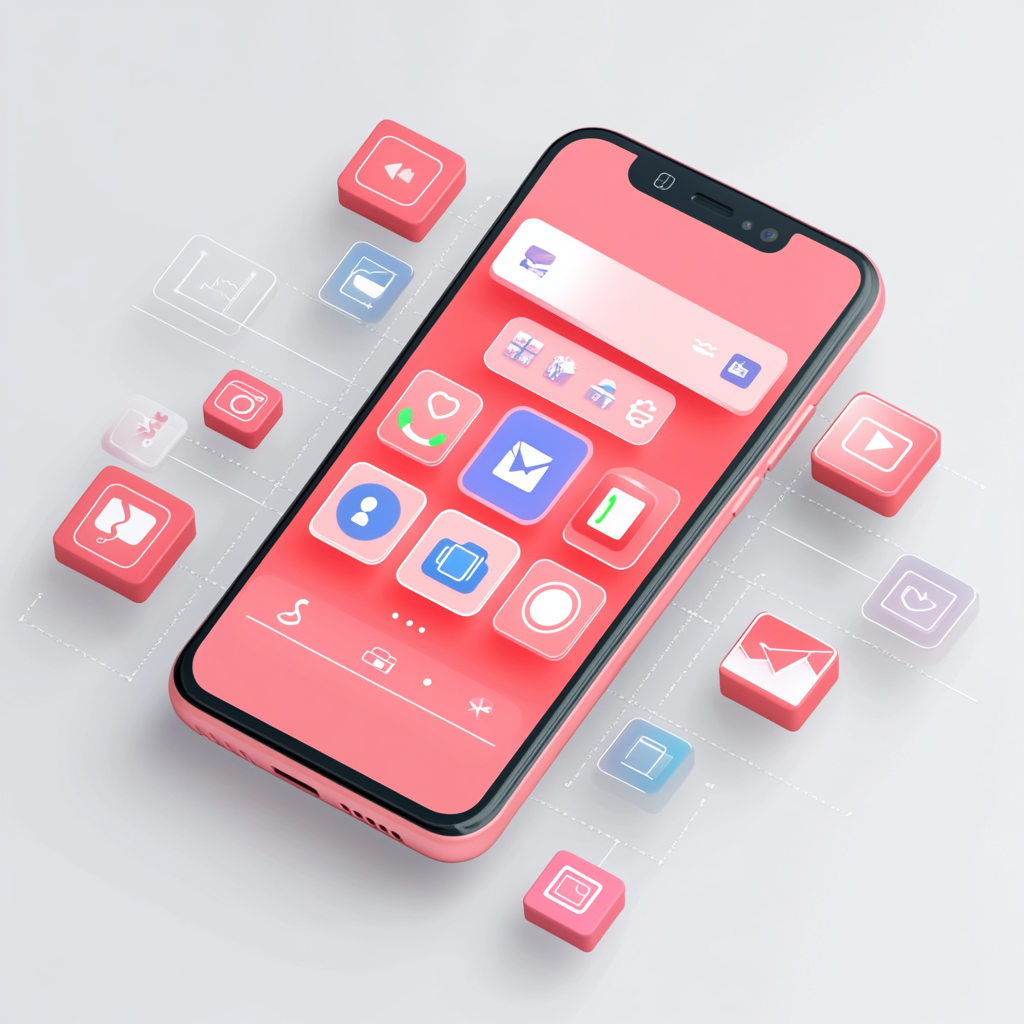CleverTap Competitors and Alternatives: A Comprehensive Guide for Mobile App Engagement
The battle for user attention has never been fiercer in the mobile app space. With acquisition costs soaring and retention rates typically hovering below 30% after 90 days, the tools you choose to engage users can make or break your app’s success. While CleverTap has gained popularity as a customer engagement solution, savvy product teams are increasingly evaluating alternatives to ensure they’re deploying the optimal tech stack.
Having architected engagement strategies for dozens of apps across multiple industries, I’ve seen firsthand how the right platform choice can dramatically impact key metrics. This guide cuts through the marketing hype to deliver an honest, technical assessment of CleverTap and its primary competitors.
The Current State of CleverTap
CleverTap emerged as a mobile-first customer engagement platform that bridges analytics and marketing automation. Before diving into alternatives, let’s establish a clear understanding of CleverTap’s core architecture and capabilities.
Technical Foundation and Key Capabilities
At the heart of CleverTap sits TesseractDB, their proprietary time-series database optimized for behavioral analytics. Unlike conventional relational databases that struggle with time-sequenced user events at scale, TesseractDB processes:
- Over 2,000 event data points per user monthly
- Real-time event ingestion with sub-second latency
- Unified cross-device identity resolution
- Time-series pattern recognition for behavioral cohorts
This infrastructure enables CleverTap’s core technical capabilities:
Event Analytics and Segmentation
CleverTap’s event tracking implementation is relatively straightforward, similar to Firebase Analytics but with additional campaign attribution capabilities. The platform excels at:
- Funnel analysis with unlimited steps and time windows
- Retention cohort analysis by acquisition source
- Session replay for UX optimization
- Custom event property segmentation
One technical limitation is the lack of retroactive property changes—unlike Amplitude, which allows historical reprocessing, CleverTap’s event properties are immutable once logged.
Engagement Automation
CleverTap’s campaign orchestration system operates on a trigger-condition-action model that enables:
- Multi-step user journeys with conditional branching
- Cross-channel message orchestration
- Dynamic content personalization via Liquid templating
- Delivery time optimization algorithms
The journey builder is more sophisticated than basic marketing automation tools but lacks some of the advanced segmentation capabilities found in enterprise platforms like Braze.
Predictive Modeling
CleverTap employs machine learning for several automated insights:
- Churn prediction scoring based on behavioral patterns
- RFM (Recency, Frequency, Monetary) segmentation
- Optimal send-time prediction per user
- Propensity modeling for conversion actions
While useful, these models operate as black boxes with limited configurability compared to purpose-built ML platforms like Azure ML.
Integration Ecosystem
CleverTap offers standard integration patterns:
- SDK support for iOS (SwiftUI), Android (Kotlin), React Native, Flutter
- Server-side API for custom implementations
- Webhook support for third-party service triggers
- Pre-built connectors for common marketing tools
The SDK implementation is reasonably lightweight at ~5MB and shows minimal impact on app performance in our testing. However, it lacks the comprehensive app development features found in Firebase and requires separate implementation alongside other core services.
Where CleverTap Falls Short: The Technical Gaps
Through our implementation experience at MetaCTO, we’ve identified several architectural limitations where CleverTap alternatives might deliver superior capabilities:
Data Infrastructure Limitations
CleverTap’s data model serves its core use cases well but presents challenges for complex data environments:
- Identity Resolution Constraints: Unlike true CDPs, CleverTap struggles with probabilistic identity matching across anonymous sessions
- Data Portability: Extracting historical user data for migration is cumbersome
- Schema Flexibility: Event property modifications require version changes rather than schema evolution
- Data Warehouse Integration: Limited native connectors to BI platforms compared to Mixpanel
These limitations become particularly problematic when implementing sophisticated attribution models that require data from tools like AppsFlyer.
User Authentication Challenges
CleverTap’s user identity management lacks some modern authentication capabilities:
- No native support for passwordless authentication like Magic Links
- Limited integration with Firebase Auth
- Absence of progressive profiling capabilities
- Restricted cross-platform identity unification
For apps requiring sophisticated auth flows, implementing CleverTap alongside dedicated identity solutions creates unnecessary complexity.
Revenue Optimization Gaps
Unlike specialized monetization platforms, CleverTap offers limited capabilities for:
- Subscription analytics integrated with RevenueCat
- A/B testing payment flows with Stripe Billing
- LTV prediction by acquisition channel
- Ad revenue optimization for AdMob
These gaps often necessitate multiple platform implementations, increasing SDK bloat and integration complexity.
Top Alternatives to CleverTap: Technical Assessment
Based on our implementation experience across dozens of mobile apps, these platforms represent the strongest alternatives to CleverTap, each with distinct architectural advantages.
Insider has evolved from a marketing automation tool to a comprehensive customer data platform with engagement capabilities.
Technical Architecture
Insider’s core differentiator is its unified customer data foundation, which:
- Maintains persistent user profiles across channels and devices
- Employs both deterministic and probabilistic identity matching
- Offers more flexible segmentation with nested conditions and behavioral scoring
- Provides superior web personalization through JavaScript-based DOM manipulation
The platform’s predictive capabilities leverage standardized ML models that can be customized through their prediction manager—a level of transparency lacking in CleverTap’s black-box approach.
Implementation complexity: Moderate
SDK size impact: ~7MB
Server-side processing latency: 50-200ms
Technical documentation quality: Good
API completeness: Excellent
Insider particularly shines for businesses with significant web and mobile traffic requiring seamless cross-channel orchestration. It outperforms CleverTap in web personalization scenarios while maintaining comparable mobile capabilities.
2. Braze: Enterprise-Grade Messaging Infrastructure
Braze approaches customer engagement from a messaging architecture perspective, with industry-leading delivery infrastructure.
Technical Architecture
The Braze platform is built on a horizontally scalable microservices architecture that enables:
- Massive throughput for time-sensitive notifications (millions per minute)
- Sophisticated content personalization through Connected Content
- Server-side template rendering for consistent cross-channel experiences
- Advanced rate limiting and fatigue management
Braze’s Canvas flow builder offers superior journey orchestration capabilities with:
- Exception handling for message delivery failures
- Parallel and serial path orchestration
- Global frequency capping rules
- Holdout group testing in production environments
Implementation complexity: High
SDK size impact: ~9MB
Server-side processing latency: 20-100ms
Technical documentation quality: Excellent
API completeness: Excellent
The platform excels for large-scale enterprises with sophisticated messaging needs, but requires more technical resources for implementation and maintenance than CleverTap. Its content delivery network consistently outperforms CleverTap for global push notification delivery in our testing.
3. MoEngage: AI-Driven Engagement Alternative
MoEngage positions itself as the AI-native engagement platform, with machine learning capabilities embedded throughout its architecture.
Technical Architecture
MoEngage’s technical approach centers on its Sherpa AI engine, which:
- Applies reinforcement learning for channel and content optimization
- Automates cohort discovery based on behavioral patterns
- Provides predictive analytics with explainable features
- Enables automated segment movement alerts
The platform’s technical integration options are comprehensive:
- REST API for server-side implementation
- Lightweight mobile SDKs with configurable batching
- Native web SDK with low impact on page load times
- Batch processing capabilities for data imports
Implementation complexity: Moderate
SDK size impact: ~4MB
Server-side processing latency: 100-300ms
Technical documentation quality: Good
API completeness: Good
MoEngage serves as a strong alternative for development teams prioritizing AI-driven engagement with minimal implementation overhead. Its lower SDK footprint makes it particularly suitable for apps where binary size is critical, though its processing latency is slightly higher than premium alternatives.
4. OneSignal: Lightweight Push Notification Specialist
OneSignal takes a fundamentally different architectural approach, focusing exclusively on messaging rather than attempting to be an all-in-one platform.
Technical Architecture
OneSignal’s infrastructure is purpose-built for push notification delivery:
- Optimized SDK with minimal app impact (~1MB)
- Industry-leading delivery rates through proprietary routing
- Simplified implementation through abstracted device token management
- Reliable delivery even during high system load
The platform’s architecture prioritizes:
- Seamless integration with external data sources
- Tag-based segmentation rather than event-based analysis
- Intelligent delivery optimization based on timezone and activity patterns
- Efficient background notification processing
Implementation complexity: Low
SDK size impact: ~1MB
Server-side processing latency: 10-50ms
Technical documentation quality: Excellent
API completeness: Good (for messaging)
OneSignal represents the ideal alternative for development teams seeking to separate messaging concerns from analytics, particularly when push notifications are the primary engagement channel. It pairs well with dedicated analytics platforms like Amplitude or Mixpanel.
5. Firebase + Custom Stack: The Developer Approach
For technically sophisticated teams, combining Firebase with purpose-built services often delivers superior flexibility and performance.
Technical Architecture
This approach leverages Firebase’s core infrastructure:
- Firebase Analytics for event tracking and attribution
- Firebase Cloud Messaging for push notification delivery
- Firebase Remote Config for feature flagging
- Firebase Crashlytics for stability monitoring
Custom engagement capabilities are then built on this foundation using:
- Cloud Functions for triggering personalized communications
- BigQuery for advanced user segmentation
- Pub/Sub for real-time event processing
- Custom logic for advanced journey orchestration
Implementation complexity: Very High
SDK size impact: Variable (5-15MB)
Server-side processing latency: Variable
Technical documentation quality: Excellent
API completeness: Unlimited (custom)
This approach provides maximum flexibility for unique engagement requirements but demands significant development resources. It’s most suitable for teams with specific technical constraints or highly customized engagement needs that off-the-shelf platforms can’t satisfy.
Implementation Considerations: Beyond Feature Lists
The technical implementation of any engagement platform involves considerations beyond marketing feature comparisons. Based on our integration experience, these factors significantly impact success:
Test Environment Support
Product testing is essential for reliable engagement implementations. Platforms vary significantly in their support for:
- TestFlight integration for iOS beta testing
- Sandbox environments for campaign testing
- Production debugging capabilities
- Event validation tools
CleverTap offers acceptable test environment support, though Braze provides superior production debugging tools. OneSignal’s simplified architecture makes testing straightforward with minimal configuration.
Data Security and Compliance
Customer engagement platforms process sensitive user data, making security architecture crucial:
- Data residency options for regional compliance
- Encryption standards for data at rest and in transit
- Access control granularity
- Audit logging capabilities
- GDPR and CCPA compliance tools
CleverTap meets industry standards for data security but offers less granular access controls than enterprise alternatives like Braze or Salesforce Marketing Cloud.
Integration Complexity
Implementation resources vary significantly based on:
- SDK instrumentation requirements
- User identity reconciliation needs
- Server-side vs. client-side processing
- Custom event mapping complexity
- Integration with existing authentication systems
In our implementation experience, CleverTap typically requires moderate engineering resources—less than Braze but more than OneSignal. Firebase-based custom solutions initially require the highest implementation investment but offer long-term flexibility.
Scalability Considerations
As apps grow, platform scalability becomes increasingly important:
- Event volume pricing models
- MAU (Monthly Active User) scaling costs
- API rate limiting policies
- Push notification throughput
- Real-time campaign processing limitations
CleverTap’s pricing scales reasonably with user growth but can become expensive for high-event-volume apps. OneSignal typically offers the most favorable scaling economics for push notification-focused strategies.
How We Help Implement the Right Solution
At MetaCTO, our approach to engagement platform implementation goes beyond basic integration. We follow a systematic process refined through dozens of successful implementations:
1. Technical Requirements Analysis
We begin by mapping your specific engagement needs to technical requirements:
- Event taxonomy planning based on business objectives
- User identity strategy across platforms
- Data integration architecture with existing systems
- Security and compliance requirements
- Performance expectations and SLAs
This analysis forms the foundation for platform selection and implementation planning.
Based on technical requirements, we architect the optimal solution:
- Platform selection considering technical constraints
- SDK implementation planning
- Data flow mapping across systems
- API integration architecture
- Backup and recovery strategies
For apps with complex requirements, we often recommend hybrid approaches combining specialized tools rather than forcing all needs into a single platform.
3. Implementation and Testing
Our technical implementation includes:
- SDK integration with minimal performance impact
- Server-side API configuration
- Event validation and debugging
- Test environment configuration
- A/B test infrastructure setup
We follow software engineering best practices throughout, including code reviews, automated testing, and documentation.
4. Optimization and Scaling
Post-implementation, we focus on optimizing engagement performance:
- Analytics dashboard configuration for KPI tracking
- Campaign performance analysis
- A/B test analysis and implementation
- Segmentation optimization
- Technical performance monitoring
This ongoing optimization delivers continuous improvement in engagement metrics and platform ROI.
Making the Right Decision: A Technical Framework
Choosing between CleverTap and alternatives requires balancing multiple technical factors. Consider this framework for evaluation:
-
Data Architecture Needs
- Do you require a true CDP with unified customer profiles?
- How important is historical data reprocessing?
- What level of identity resolution sophistication do you need?
-
Technical Resource Constraints
- What is your engineering bandwidth for implementation?
- Do you have data science resources for custom models?
- What level of ongoing maintenance can you support?
-
Scaling Considerations
- What is your projected user growth trajectory?
- How will event volume scale with feature additions?
- What are your cost constraints at scale?
-
Integration Requirements
- What existing systems require integration?
- Do you have requirements for real-time data synchronization?
- What authentication system are you using?
-
Engagement Channel Priorities
- Which channels drive the most user engagement?
- Do you require specialized capabilities in specific channels?
- How important is cross-channel orchestration?
This systematic approach cuts through marketing claims to identify the optimal technical solution for your specific requirements.
The ideal engagement platform isn’t necessarily the one with the most features or the slickest marketing—it’s the one that aligns with your technical architecture, resource constraints, and business objectives.
CleverTap delivers a capable mobile-first engagement solution suitable for many applications, but alternatives often provide superior capabilities in specific areas. The best approach frequently involves combining specialized tools rather than forcing all requirements into a single platform.
At MetaCTO, our technical expertise spans the entire engagement ecosystem. We’ve implemented every major platform across dozens of applications, giving us unparalleled insight into their practical strengths and limitations beyond marketing claims.
Ready to architect an engagement solution optimized for your specific technical requirements? Contact our team to discuss your needs and discover how our engineering-led approach delivers superior results.




